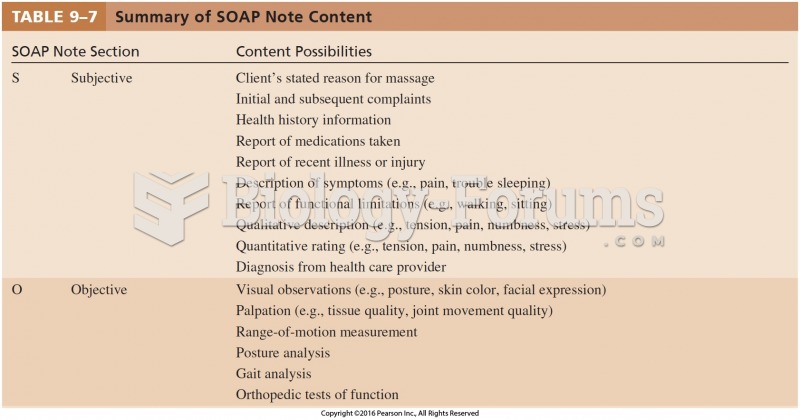|
|
|
Aspirin may benefit 11 different cancers, including those of the colon, pancreas, lungs, prostate, breasts, and leukemia.
Your chance of developing a kidney stone is 1 in 10. In recent years, approximately 3.7 million people in the United States were diagnosed with a kidney disease.
Only 12 hours after an egg cell is fertilized by a sperm cell, the egg cell starts to divide. As it continues to divide, it moves along the fallopian tube toward the uterus at about 1 inch per day.
When intravenous medications are involved in adverse drug events, their harmful effects may occur more rapidly, and be more severe than errors with oral medications. This is due to the direct administration into the bloodstream.
To maintain good kidney function, you should drink at least 3 quarts of water daily. Water dilutes urine and helps prevent concentrations of salts and minerals that can lead to kidney stone formation. Chronic dehydration is a major contributor to the development of kidney stones.
 Female leopard in the Sabi Sands area of South Africa. Note the white spot on its tail, used for com
Female leopard in the Sabi Sands area of South Africa. Note the white spot on its tail, used for com
 In 1879 an army officer founded the Carlisle School in Pennsylvania to “civilize” young Indians. The
In 1879 an army officer founded the Carlisle School in Pennsylvania to “civilize” young Indians. The





